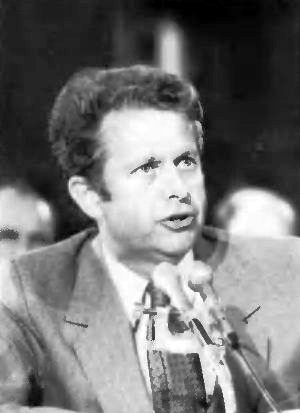![]()
The Words of the Tribe Family
|
|
The Words of the Tribe Family |

Prof.
Lawrence Tribe states his point of view of the constitutional
underpinnings of religious liberty before the Senate Hearing.
I am honored by this Subcommittee's invitation that I appear to express my views on the federal constitutional underpinnings of religious liberty in America -- and on what I perceive to be an escalating disregard by government for religious freedom and for the separation of church and state, without which such freedom and the open society such freedom sustains, cannot long endure.
I believe that the ultimate aims of the First Amendment's religion clauses are to facilitate spiritual volition by showing no government favoritism toward, or animosity against, any religious group or view, but instead letting "each flourish according to the zeal of its adherents and the appeal of its dogma," Zorach v. Clauson, 343 U.S. 306, 313 (1952). I believe it also aims to assure that spiritual institutions not be armed with the governmental powers of sword or purse.
The Supreme Court has authoritatively summarized the "purposes of the First Amendment guarantees relating to religion" as "twofold: to foreclose state interference with the practice of religious faiths, and to foreclose the establishment of a state religion familiar in other Eighteenth Century systems." Larkin v. Grendel's Den, 103 sect. 505, 510 (1982).
The Court in Grendel's Den further recalled that, "[at] the time of the Revolution, Americans feared not only a denial of religious freedom, but the danger of political oppression through a union of civil and ecclesiastical control," id. at 512 n. 10. Whenever civil authority seeks simultaneously to don the sanctifying cloak of religious destiny, both the denial of religious freedom and the danger of political oppression are realized.
Today, in disputes over matters as diverse as the teaching of children and the taxation of income, government institutions at all levels are arrogating to themselves the power to define new boundaries between the secular and the sacred -- to swallow the life of the spirit within the bowels of the bureaucracy, and to surround the secular halls of the state with the sacred garb of the church.
It is hardly faithful to the vision of the framers [of the Constitution] for courts to hold that legislatures may initiate their proceedings with official prayers pronounced by publicly funded chaplains -- but that children may not initiate voluntary prayers on public premises even after school hours. It is hardly consonant with what the framers envisioned, for the most sacred symbols of Christianity to be placed at public expense in a city's central square -- while neutral programs of financial aid to all private schools, religious as well as secular, are struck down because they encourage political activism by religious groups. Nor is it faithful to the Constitution's plan for jurors in criminal cases to be licensed to substitute their lay allocation of church property or authority for that of a church, or for officials in a state's educational bureaucracy to be licensed to superimpose their ideological criteria of what children should learn upon the religious criteria of families and churches.
I fear in short that this nation has departed dramatically from the relationship between church and state so wisely contemplated by the framers of our Constitution. To the extent that the state and federal judiciary tolerate or indeed engineer such departures, it is not only to those institutions that we must appeal but also to state legislative assemblies and to Congress itself.
When the courts of California were permitted by the United States Supreme Court to remain inactive when then Attorney General George Deukmejian imposed a receivership on an entire church, it was the California legislature that responded by enacting limits upon such shameless pretensions to power. Just so, to the extent that the United States Supreme Court remains inactive while the Internal Revenue Service, or the Department of Justice, or state officials, invade the sacred precincts -f religion or prop themselves up with religion's supporting symbols, it is Congress that should consider measures for redress.
To be sure, violations of the First Amendment ordinarily appear in cases involving unpopular minorities -- groups and individuals unlikely to attract sufficient political support to make Congressional action feasible. But, unique among the protections of the Bill of Rights, those of the Religion Clauses create not simply rights for individuals and minorities against the state but a structural norm of disengagement between two spheres of life. When that norm is violated, it is not simply the rights of identifiable victims that are ravaged; at risk is a form of society to which, for better or worse, the Constitution commits us all and from which, one may hope, we all stand to gain.
It thus seems fitting that, whatever role courts might play in the elaboration of rights against government, Congress should play a special role in preserving a structure of government that makes the very idea of rights meaningful. In our society, such a structure requires that vigilant separation of the ecclesiastical and civil realms. I believe that this Subcommittee is to be commended for initiating a serious inquiry into the state of that separation in America today.